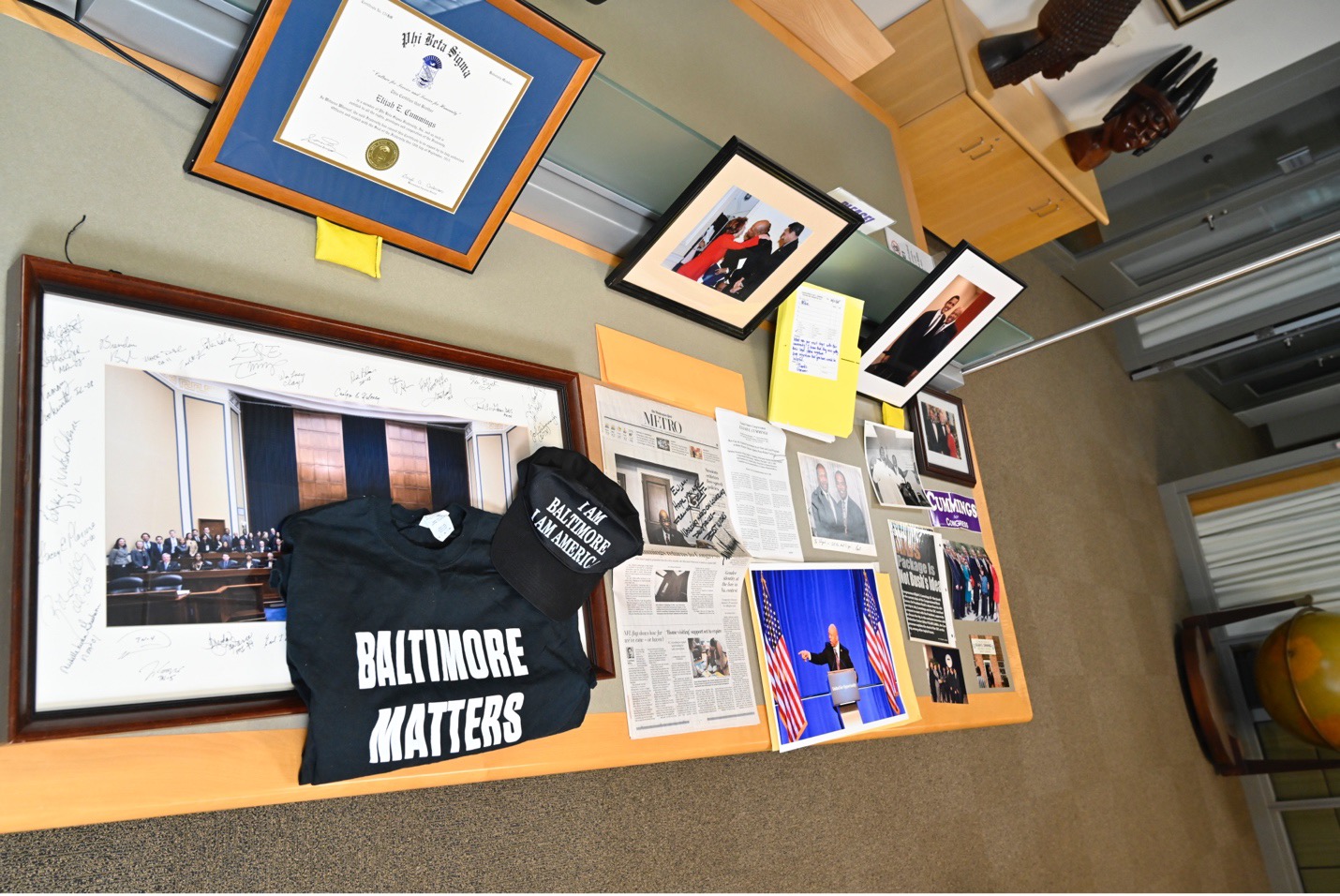By Morgan State University
Furthering a long-standing connection between Maryland’s largest Historically Black College and/or University (HBCU) and the late Congressman Elijah E. Cummings, Morgan State University has acquired a 200 linear-foot personal collection of papers, framed artwork, photographs, numbered pieces, and a small cache of curated Maryland belongings from the Cummings estate. After a year of coordination and working exclusively with the estate’s attorney to transfer the bequeathed items, Morgan officially acquired the rare collection in October. The collection will be housed in the Earl S. Richardson Library’s Beulah M. Davis Research Room, where the University maintains its archives, manuscripts, and rare books. Cummings, a celebrated, influential, and well-respected member of the House of Representatives, served for 23 years in the U.S. Congress advocating for policies to help improve working-class Americans’ lives, especially Baltimore’s citizens.
“The papers of the late Congressman Elijah E. Cummings allow the Morgan State University community an opportunity to prepare, curate, and implement a correct narrative of a native Baltimorean, lawyer, legislator, and compassionate politician who balanced his responsibility with clarity,” said Ida E. Jones, Ph.D., associate director of Special Collections and University Archivist. “Using his booming voice and skillful diplomacy while remaining accessible to the everyday person kept him grounded in working to provide equitable access for all Baltimoreans, Marylanders, and American citizens.”
The collection is a rich textual, visual, and artifactual testament to the humanitarian, legislator, HBCU alumnus, and native Baltimorean’s decades-long career as a champion for the city. The most noteworthy among the documents are voluminous constituency letters of concerned citizens and various items depicting significant milestones and achievements in advancing policy and legislature. Before taking possession of the valuable belongings, Morgan first had to address matters related to funding, spacing, and other essential needs.
First elected to the Maryland House of Delegates in 1982, Cummings was known as a compassionate advocate who cared about people and saw politics as a way to improve the lives of others. For 14 years, he represented District 44, a predominantly Black district in southwestern Baltimore, and served as vice chairman of the Constitutional and Administrative Law Committee and the Economic Matters Committee. While serving in the Maryland State Legislature, Cummings became the first African American in Maryland history to be named speaker pro tempore —the House of Delegates’ second-highest position. As a Delegate, he fought for investments in Baltimore, sought ways to increase economic opportunities for Maryland families, advocated for disadvantaged minority businesses, and created policies to reform health disparities and quality of life issues in the Black community.
“Of particular interest are his constituency letters that allow the reader to understand the intersection of race, poverty, and access that frustrated many under-educated and under-employed Baltimoreans,” said Dr. Jones. “His collection will expose Morgan students to potential careers in information science, politics, finance, and business while being tempered with a thread of cultural stewardship.”
Cummings was born in Baltimore City and graduated from Baltimore City College, a selective Baltimore high school. He graduated Phi Beta Kappa from Howard University with a bachelor’s degree in political science and earned a law degree from the University of Maryland School of Law. After graduating, he founded a law firm in Baltimore and worked at his practice until his election to Congress. Cummings died on October 17, 2019, after longstanding health challenges. He was the first Black member of Congress to lay in state in the Capitol’s National Statuary Hall. In February 2020, House Democratic leadership honored Cummings by renaming the Oversight and Reform Committee hearing room in the Rayburn House Office Building the Elijah E. Cummings Room. Cummings served on Morgan’s Board of Regents from 1999 until his death and held an honorary Doctor of Law degree from the university for his significant impacts on politics.
The next step for the collection is for the University to secure grant funding to assist in processing and digitizing the constituency letters in order to track the breadth and depth of societal, economic, and legal issues the late Congressman mediated during his congressional tenure.

